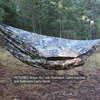-
Posts
4937 -
Joined
-
Last visited
-
Days Won
136
Eagle94-A1 last won the day on April 17
Eagle94-A1 had the most liked content!
Profile Information
-
Gender
Male
Recent Profile Visitors
The recent visitors block is disabled and is not being shown to other users.
Eagle94-A1's Achievements
-
I taught at 1 MBU, and was never asked back. I told the folks running it, it would be a partial UNLESS the Scout did work before hand to do the stuff I was unable to do at the event. out of about 50- 60 people in 2 sessions, 1 person did the work before coming to the MBU. Another Scout contacted me after the event with the work. No one else contacted me about the badge. And the folks running it never asked me again. Same event, but a friend's encounter. Crime Prevention MB had a disruptive Scout. Was sent out after a few problems. At the end of the day, complains he never got Crime Prevention MB that he "Paid for." Thankfully my district knows not to convert a camporee into a MBU. They did that 1 year. Attendance was poor, and only 2 units liked it.
-
Sadly, some of the stuff is not being taught in schools, or well enough for them to remember. When I took a group of Scouts to DC, we did one of the historic trails that had a lot of Citizenship in the Nation info along the trail. Plus all the Scouts, except the visiting Webelos, had Civics in HS. NONE OF THE SCOUTS COULD TELL ME WHAT THE THREE BRANCHES OF GOVERNMENT WERE, THE BILL OF RIGHTS, ETC!!!!!!!!! (bold and caps for major emphasis). Only the homeschooled Weblos could give me the correct info for the MB. When I asked the Scouts if they had civics yet in HS, all said yes, but all they did was watch videos on their laptops. But that is a different topic for another day. Agree 100% My troop has no feeder pack. Every time it seems as if we are going to fold, we get enough transfers to keep it alive another year. We are a hiking, camping, and biking troop. That is how we attract Scouts: focusing on Outdoors. As for growth, we focus on personal growth. We do not push MBs or advancement. If it takes 4 years for First Class, so be it. We let the Scouts grow at their own pace. Which is probably why our Eagles stick around until they turn 18, or go to college. We are hanging on by a thread, but we are hanging on.
-
So as you may know, my troop recruits by word of mouth. Mostly transfers from other units. I am seeing a really depressing trend, Scouts coming in with skills signed off, but have no idea what to do or are not able to do it. From one troop we have a guy who was signed off on a bunch of stuff through First Class, including passing a swim test. Yet when we did the annual swim test, could barely pass the beginner test. When I asked about it, he said he didn't remember passing a swim test, but his old troop signed off on it after summer camp. When asked if he took instructional swim ever, he said no. We got another potential Scout, he is checking out other troops now, visit us a few times. When I asked about what rank he is, experience with o other troop, etc. It is a deer on the headlights. When working on Scout skills, deer in the headlights when asked to do them. He doesn't even know what rank he is. When I finally met the dad, dad said he is First Class and dad has all the paperwork. When I told dad once he joins the troop, I can access SCOUTBOOK, and whatever is missing I can use his handbook, dad said he doesn't have a handbook, but he has a folder of what he has done. Finally, we got a Life Scout transfer in. Took him camping, and forgot a bunch of gear, including gear I sent reminders on. He didn't know how to pack for a campout, nor set up a tent. When asked about camping, he said troop went camping 2, maybe 3 times a year. And summer camp was on your own as provisional. Previous to the campout he asked about his remaining MBs. I checked Scoutbook, and when I mentioned Citizenship in the Community, he told me he should have that because we went to the city meeting. When I told him more is involved with the MB, he told me that his previous SM told him all he needed to do was the city meeting and he got it. The topic of board of reviews came up talking to another Scout. He asked what they were. When I explained what they were, and asked about them in his old troop, he told me, "Oh, Mr. (SM's Name) and Mr. (CC's (?) name) said they don't have time to do one, but I got the rank." Is anyone else seeing this trend of folks getting signed off, but not actually doing the work? And of course, once it is in Scoutbook, it is a done deal.
-
For Pros, the 2 membership deadlines in the past have been December 31st and June 30th. Those are what their performance reviews is based upon. As for October 1st, I bet that is when most Roundups have been finished, and we get all the new Cub Scouts.
-

Can we resurrect BP and his early theatricals?
Eagle94-A1 replied to skeptic's topic in Going to the next Jamboree?
When I was in the UK, they still had Scout and Guide variety show. -
-
Well, one troop I know created their own Eagle Scout certificate template that looks like the real certificate. Maybe I can get a copy.
-
I find it amusing that the stuff that cannot be easily made, i.e. patches and medals, have been done and out for a while, but the item that can be easily laser printed we are waiting on.
-
What's up with the delay in Eagle Certificates? If they are waiting for the president's signature, why not use the one form the previous term? And if it is a design issue, why were they not updated when the medals and patches were updated. Those have been available for some time now.
-

Cit Comm MB #3 and Communication #5 overlap?
Eagle94-A1 replied to BuffaloAnnie's topic in Advancement Resources
I too used to, stress USED TO, do that. But was informed that unless the requirement specifically states you cannot use an activity for more than one requirement, you gotta accept it. I am waiting for the duel enrolled Girl Scout/Scouting America Scout to do one project for both their Gold Award and Eagle. -
One reason why my troop is still alive: we DO stuff. Except for 2 members, all of my Scouts transferred from other troops. And one of the 2 had brothers who transferred into the troop. Sad thing is this: it can be very, VERY (emphasis) discouraging for some Scouts who see the 'Paper Eagles" I cannot tell you how many times in the past few years I have seen Scouts discouraged and not want to earn Eagle, because of "paper Eagles." Sadly I have met too many folks that believe summer camp/ merit badge weekends/etc are "purchasing" MBs.
-
Did whomever who came up with this not look at history and the 1972 "Improved Scouting Program" fiasco, where it was possible to become an Eagle without a single night of camping? HOW ( emphasis) was it mentioned? Do they realize that this contradicts the fully digital comments above? Do they not realize the 'OUTING is three-fourths of ScOUTING?"
-
Do not know about staff size, but guarantee that fundraising is a factor.
- 47 replies
-
- 1
-

-
- council opps
- district opps
- (and 3 more)
-
Until recently, multiple units could camp together with no issues. I think National tightened the multiple units policy because some were creating their own events like camporees and summer camp even. As long as the YPT policies OF THE DAY (emphasis, YPT has become significantly tighter, i.e. only 21 year olds count towards YPT, parents are not allowed to camp, etc) you were fine.
- 47 replies
-
- council opps
- district opps
- (and 3 more)
-
@Prime00, 110% correct. But sometimes, just sometimes, the pros are so bad, that new Scouters with kids still in the program back away. As to why it happens? Sometimes the pros move from one areas where stuff they are proposing/mandating/changing is successful, but in the area they move it doesn't work. One example I can give is packs having designated schools they recruit from. Great idea when you are in an area with neighborhood schools. But when you move to an area with forced bussing, not such a good idea.
- 47 replies
-
- council opps
- district opps
- (and 3 more)





